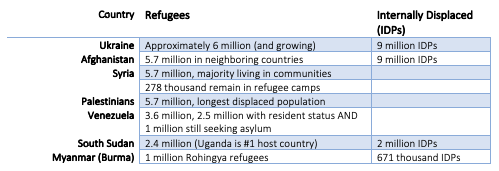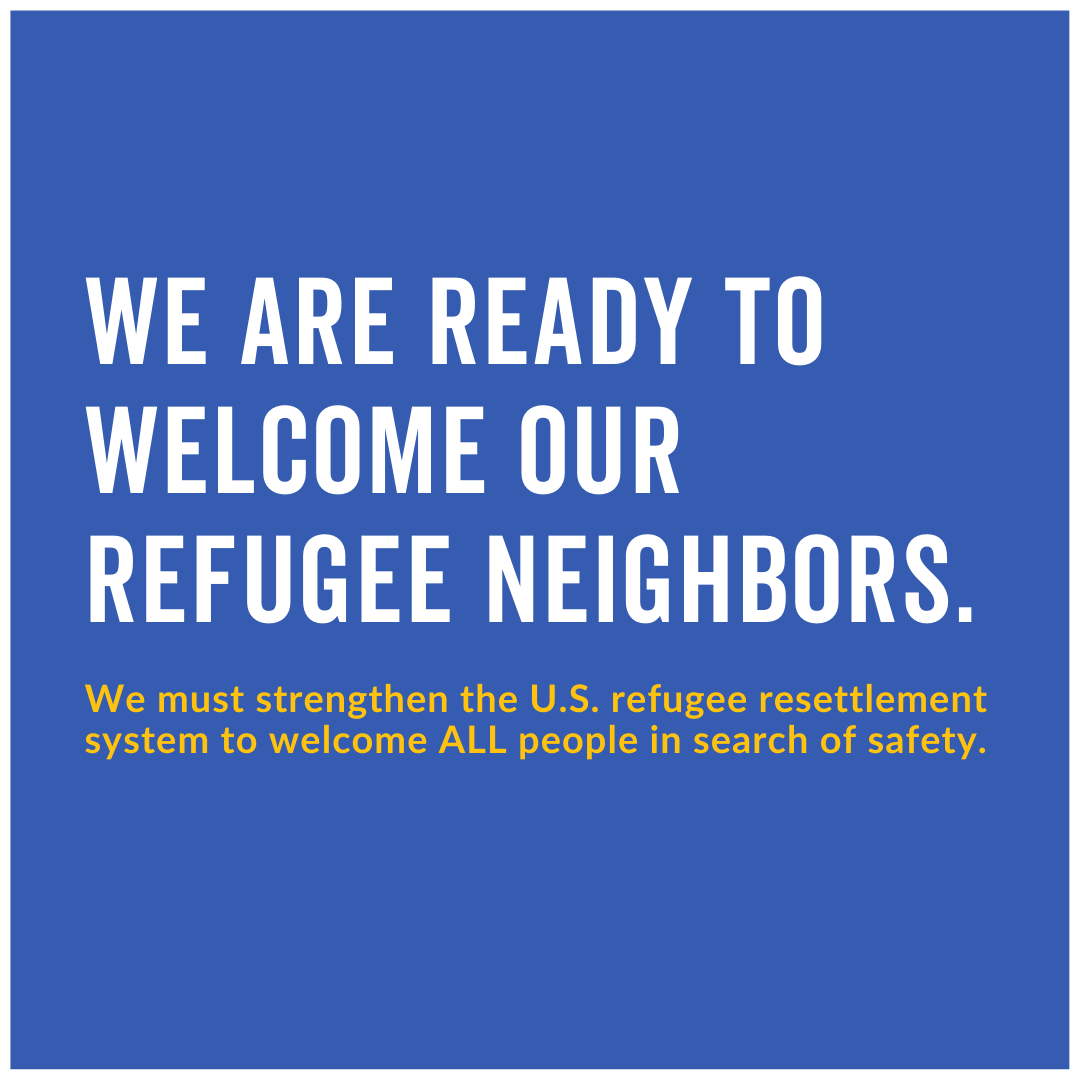As we approach another World Refugee Day on June 20th, we begin by noticing all that has changed since June 2021, including new refugee situations, government policies, and the care and support provided by governments, non-governmental organizations, and faith communities.
This past year saw the largest recorded number of forcibly displaced persons and was also one of the fastest growing periods of forced migration. Last August, the Taliban’s takeover of Afghanistan resulted in the departure of millions of Afghans—in addition to those who have been living as refugees for decades. This February, as Russia increased its attacks on Ukraine, the latest largest refugee situation unfolded. With media coverage focused more heavily on these “bigger” stories, less attention has been given to refugees from other regions of the world, including those in protracted situations in Syria, Palestine, Venezuela, The Democratic Republic of Congo (including 5 million IDPS), Central African Republic, and Nigeria, as well as those fleeing Honduras, Guatemala and El Salvador.
The most recent information (May 2022) lists the largest refugee situations as the following:

We celebrate the evacuation of thousands of Afghans—70,000 brought directly to the U.S.—as well as Temporary Protective Status grants for Afghans, Ukrainians and Cameroonians. At the same time, the use of Humanitarian Parole with the Afghans leaves many of them apprehensive about the expiration of their permission to be here as they simultaneously struggle to apply for asylum. The Government’s commitment to accept at least 100,000 Ukrainians reminds us that when there is the will, governments can find a way. And so, we call on the Government to make such decisions based on the objective review of circumstances instead of racial, ethnic or national biases. And we remember those refugees who have been stranded these past several years waiting for the U.S. to rebuild and restore its resettlement program.
There has been little progress in U.S. asylum and border policies since last June. While the border has never been fully closed to asylum seekers, it is still limited by nationality and certain exceptions. The vast majority of asylum seekers allowed to enter are from Cuba, Nicaragua, Venezuela and Ukraine. Lawsuits to keep the Remain in Mexico and Title 42 policies in place have been successful. As advocacy continues to work to end these harmful practices, border shelters and transit ministries are in regular conversation with U.S. officials to prepare for an increase in those admitted at the Mexico border. New asylum protocols would streamline some of the process, but many details are still unclear. Border ministries report an increasing number of people arriving without a family member or friend to receive them, signaling a need for more churches and groups to offer accompaniment ministries.
There are a number of ways that you and your congregation can honor and commemorate World Refugee Day, some of which we highlight below:
- All are invited to join us virtually on Wednesday, June 1st at 2 p.m. Eastern for a national Ecumenical Worship Service. PC(USA), along with United Church of Christ, Disciples of Christ, and Mennonite Central Committee are offering this service for a time to pray together, hear God’s word to us from two inspirational preachers, and remember refugees here and around the world. Please register here. The recording and related resources will be made available to local congregations June 20 or another day of their choice.
- If you are organizing a World Refugee Day event in your area, feel free to add it to this calendar hosted by We are All America.
Looking for ways to honor the refugees in your community and worldwide? Join the global chorus honoring those in refugee situations by:
- recognizing the courage and resilience of refugees;
- celebrating the positive impact refugees have on U.S. communities;
- calling for peaceful resolution to conflicts around the world that cause so many people to become refugees and internally displaced;
- working to create welcome and safety in countries of refuge and transit; and
- working within our churches, our communities and with our elected leaders to expand the welcome that we extend to refugees and immigrants who are our neighbors.
You can also visit our World Refugee Day page. We will continue to update it through June as more events and materials become available.
